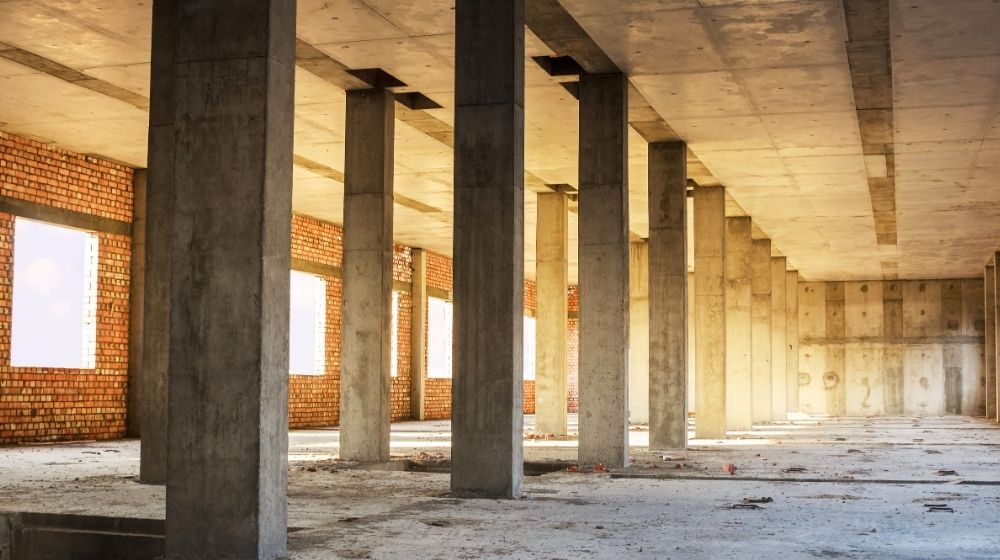Currently in Poland we are seeing a steady growth of the construction market, which translates into the growing popularity of construction contracts. Numerous templates are available on the Internet, which entrepreneurs often use. However, the use of such templates does not always effectively protect the interests of the parties. It is worth remembering that commonly available contract templates are prepared on the basis of general provisions and are usually not tailored to protect the interests of a particular Contractor or Investor. Despite the fact that both parties aim to complete the investment, their interests may be different and considered competing. So far, we have pointed out what elements in the contract will be important for the Investor, so it is time to look at what the Contractor should take care of in the placement.
Payment of remuneration
A key aspect for any Contractor is to ensure payment for the work performed. Therefore, when creating a construction contract, Contractors should focus on clearly and precisely establishing the criteria and rules for payment of remuneration. Although the legislator has introduced mechanisms in the Civil Code to protect entrepreneurs, such as guarantees of payment for construction work (Articles 6491-6495 of the Civil Code), in practice we still encounter payment bottlenecks or disputes related to the maturity of remuneration. So what should be done to ensure that the completed works are properly and efficiently settled?
The form of the contract
Despite clear regulations, our practice shows that contracts are often, especially for relatively small orders, concluded without written form. While in the case of e-mail negotiations, in case of disputes we still have the opportunity to reconstruct certain arrangements, certainly the lack of a document from which the rights and obligations of the parties will be exercised, can significantly hinder the contractors’ ability to finally carry out the work and obtain the remuneration due to them. In addition, we must remember that now that separate proceedings in business cases have been restored and the primacy of documentary evidence has been restored, the possible judicial enforcement of debts can be significantly hampered if we do not take care to write down the most important provisions of the contract being concluded.
Rules of collection
If we already have the contract in writing, it is worth including in it the rules of acceptance, which are often a source of disputes and usually raise the most doubts. It is customary that acceptance conditions the payment of remuneration, and therefore, in order to delay the payment of the due remuneration, often Investors in contracts try to include provisions that will allow them to refuse acceptance. It also happens that only in the actual state of the works submitted for acceptance are questioned, and the Investor refuses to accept them for a theoretically trivial reason.
It is accepted in the case law that the reason for refusal of acceptance can only be material defects, but this concept is so general that we still encounter refusal of acceptance in the case of the need to adjust the proverbial one screw. Consequently, it remains in the Contractor’s interest to specify in the contract the reasons justifying the refusal of acceptance of the completed work or parts thereof. Of course, it is possible to include both a closed catalog of such circumstances and try to make provisions that are more flexible. Consequently, this can save us nerves and unnecessary lawsuits. Let’s also remember that acceptance even with an existing defect allows us to avoid penalties for delay in the execution of the subject of the contract and opens an additional period for us to correct any deficiencies.
Staging of works
Another important issue is to precisely define the stages after which the works will be accepted. While in the case of relatively small investments or single orders, it can be assumed that the works are received as a whole in the framework of the final acceptance, in the case of works providing for various elements, e.g. sewer and road works, works in large sections, it is advisable to stage payments. This approach allows for ongoing financing of the work, which is beneficial to the Contractor. Agreeing to a single final payment, de facto, means crediting the entire investment, which can lead to financial difficulties, especially when paying subcontractors.
Cooperation on the part of the investor
To a large extent, the issues discussed above also apply to how the Contractor should ensure that the Investor is involved in the process of carrying out the work throughout its duration. Of course, the legislator has provided us with certain general provisions that allow us, for example, to withdraw from the contract in the absence of the Investor’s cooperation (Article 640 of the Civil Code). However, when embarking on an investment project, the Contractor’s goal is its full realization and achievement of the intended financial goals, which would be jeopardized in the event of withdrawal. Therefore, it is worthwhile to indicate in the contract the Investor’s obligations and to provide for contractual penalties in case the Contractor withdraws from the contract for reasons attributable to the Investor. Such a provision can effectively motivate the Investor to maintain cooperation with the Contractor aimed at successful completion of the project.
Deadlines and delays
What continues to cause many practical problems is the issue of the timeliness of contract performance. Of course, every contract includes a specific deadline for the completion of the work, but it is also crucial for the Contractor to define the grounds that justify any changes to the deadlines, both for partial acceptance and final acceptance. In addition, it is important for the contract to specify precisely whether liquidated damages for any untimely delays, are dependent on the Contractor’s fault. It is important to make sure that the Investor does not transfer to the Contractor all responsibility for scheduling the work and potential delays related to the actions of authorities or problems with the availability of materials, which will also result in penalties for the Contractor.
The contractual provisions presented above represent only a fragment of the important issues related to the execution of the construction contract and obtaining the remuneration due to the Contractor. Although the legislator, taking care of the interests of the theoretically weaker entities, such as Contractors (especially those who are small or medium-sized entrepreneurs), introduces certain regulations that protect their interests, so as to avoid unnecessary stress and many years of court proceedings, it is worthwhile already at the stage of creating the contract to ensure that our contract guarantees us the most transparent mechanisms for the implementation of the work and its subsequent settlement.





